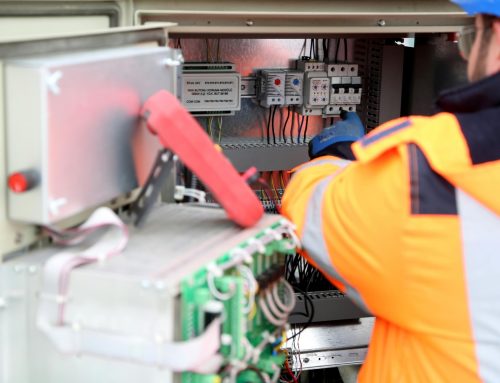Netflix recently broke new ground by using generative AI footage in its sci-fi series El Eternauta.
“We remain convinced that AI represents an incredible opportunity to help creators make films and series better, not just cheaper,” said co-CEO Ted Sarandos after announcing the company’s Q2 results. (The Guardian)
His comment mirrors what many in the digital space are starting to realize: AI isn’t here to replace creativity—it’s here to refine it. The same logic applies to SEO. For those overseeing a business or managing a brand, AI presents powerful opportunities—but also plenty of uncertainty.
Can artificial intelligence actually support your SEO goals? Which tools are worth the investment? And how do you make sure your content still sounds like you, not a machine?
With more than two decades of experience guiding clients through SEO’s constant evolution, we’ve learned that durable strategies come from adaptability, not the latest gimmicks or trending “insights”.
AI, used well, helps teams move faster with fewer guesswork loops. It can simplify planning, and highlight blind spots that would otherwise get buried in spreadsheets.
But SEO isn’t just about content. AI can reveal crawl errors before they spiral into visibility issues or help pinpoint exactly where visitors are losing interest. These tools don’t just diagnose problems, they can suggest where to focus your SEO efforts next.
Put simply, artificial intelligence tools aren’t a shortcut to sidestep established SEO practices that work. If you want your brand to climb the search engine rankings, you have to know when they can be trusted, and when they need to be ignored. Let’s take a closer look at where artificial intelligence in SEO, and broader digital marketing, has its place.
What Artificial Intelligence in SEO Actually Means
Artificial intelligence in SEO is already changing how search works behind the scenes. From Google’s AI-driven ranking systems to tools that analyze user behavior and surface search intent, machine learning now influences everything from keyword discovery to how content gets prioritized in search results. Going forward, it’s best to think of all search platforms as AI-powered search engines.
For marketers, that means the established rulebook is out of date. AI tools are reframing what effective SEO looks like. Instead of chasing keywords or writing for algorithms, we’re optimizing for context, intent, and relevance at scale. The game has changed, and AI is driving the shift.
Where AI Makes a Real Difference in SEO
Let’s break down the key areas where AI can support your efforts without replacing the human strategy behind them.
1. Smarter Keyword Research
AI-powered SEO tools can help automate keyword research by analyzing massive datasets to identify high-opportunity terms, trending phrases, and overlooked long-tails. More importantly, they can help you connect relevant keywords to search intent, which is the key to writing content that actually performs.
Instead of just focusing on volume, AI helps you understand what your audience is really looking for—and why.
2. AI-Enhanced Content Creation
Can AI write SEO content? Technically, yes. But the better question is: should it?
The best approach is using AI tools to support your content creation process. That means generating outlines, suggesting subheadings, or critiquing your own writing.
This is where AI excels:
- Producing structured drafts quickly
- Identifying opportunities to improve on-page optimization
- Suggesting internal linking strategies
- Analyzing top-ranking pages in search engine results pages (SERPs)
You need to create high quality content that readers will find helpful. If you see AI generated content as not machine-written filler. When used well, AI helps content teams move faster without sacrificing depth or originality.
3. Content Optimization at Scale
AI tools are great at surfacing technical or structural issues that may hurt your visibility in organic search.
Using AI to optimize existing content is often more impactful than churning out new pages. A few smart updates can dramatically improve search rankings, especially for posts that are underperforming despite strong potential.
4. Competitor & SERP Intelligence
Understanding who you’re up against is critical. AI-powered SEO platforms can break down how competitors structure their content, which keywords they target, and what types of content dominate specific SERPs.
This level of analysis helps you:
- Pinpoint opportunities for differentiation
- Identify gaps your content can fill
- Predict which search queries are gaining traction
Instead of guessing, you’re making decisions based on actionable insights drawn from live data.
5. Technical SEO Audits
AI can also take the heavy lifting out of technical SEO. Whether you’re looking for issues with structured data, page speed, broken links, or crawl depth, these tools make it easier to diagnose and prioritize fixes.
Some tools even integrate with your CMS or analytics platform to monitor performance and alert you when something changes.
That said, executing these fixes often requires dev support—which is why web development and SEO should go hand in hand.
Common Questions About Artificial Intelligence in SEO
Can I use AI to do my SEO?
You can use it to accelerate your SEO work, but not to replace a complete strategy. AI is most effective when paired with human experience and a solid understanding of your target audience.
Is there any AI tool for SEO?
Yes, from Jasper and Surfer SEO to Clearscope and ChatGPT, there are many different AI SEO tools out there for different use cases. Choose tools based on what you need: content support, keyword research, technical audits, or analytics.
How to write SEO content using AI?
Start with a draft or outline generated by an AI-powered platform. Then, layer in brand voice, storytelling, and human insight. Don’t forget to align with SEO best practices like internal linking, alt text, and metadata.
Can SEO detect AI?
Most likely, yes—especially if the content lacks originality or seems formulaic. Google rewards high quality content, no matter how it’s made, but it penalizes content that’s thin, misleading, or written by AI powered tools to game the system.
Will SEO be replaced by AI?
No, but it will evolve. As AI-powered search becomes more prominent (think Google’s SGE and Bing’s Chat), SEO strategies will shift toward optimizing for search visibility within these new interfaces.
Is AI good or bad for SEO?
It depends how you use it. AI can enhance your workflow and offer valuable insights. But relying on it too heavily can lead to generic, ineffective content. Balance is key.
Putting It All Together
Artificial intelligence in SEO isn’t just a trend—it’s part of the broader evolution of digital marketing. It allows us to respond to search engine trends, anticipate algorithm shifts, and build better experiences for users.
But tools alone don’t win the race. You still need strategy, execution, and a clear understanding of what matters most to your customers.
If you’re exploring AI-powered SEO, make sure you’re combining smart automation with smart humans. That’s the sweet spot where the magic happens.
Curious about using AI beyond SEO? Here’s how to use AI on social media while keeping your brand voice intact.
Looking for a partner to help you adapt? Get in touch—we’d be happy to help.





